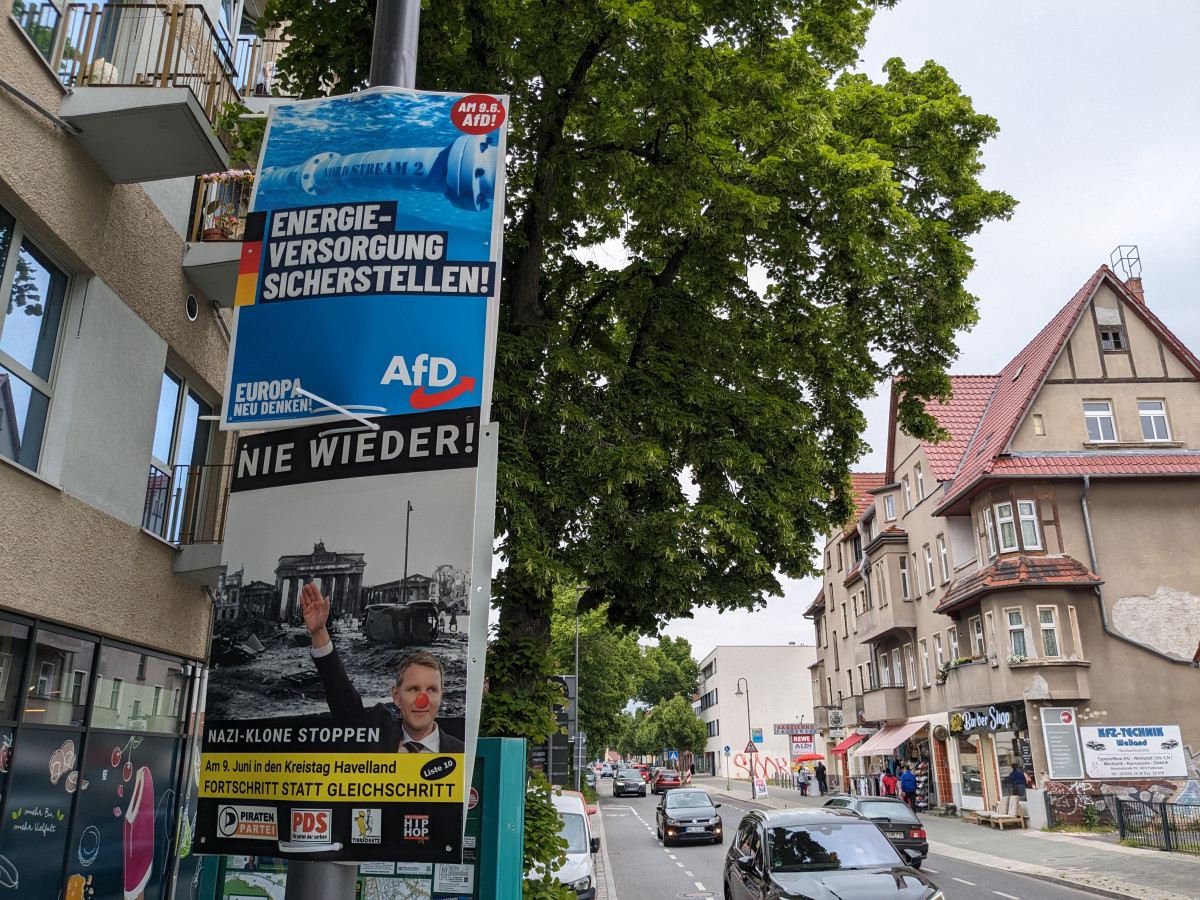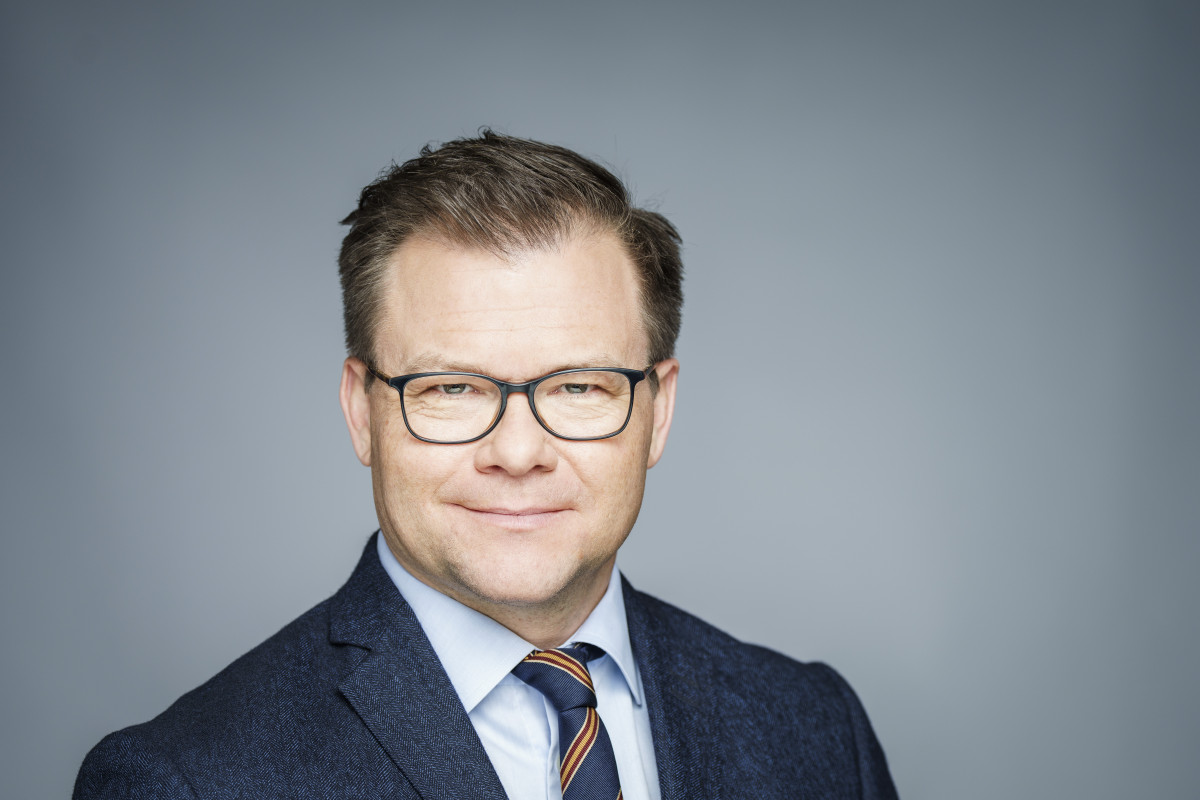Populists pose threat to prosperity of energy transition “pioneer” Eastern Germany – government official
CLEW: The German reunification that ended the existence of the former German Democratic Republic (GDR) and merged the eastern states into the Federal Republic of Germany happened more than three decades ago. Even if differences between states in the East and in the West persist, the levelling of living conditions, political participation and economic and individual freedom have significantly progressed in the former communist states since 1990. Why does Germany still need a special minister of state for the East?
Carsten Schneider: There continue to be structural differences between the East and the West. It is true that East Germany has developed very favourably in the past 35 years, with an excellent infrastructure, a competitive economy and attractive conditions for international companies that invest there, for example in the semiconductor industry. This is partly due to the region’s well-educated workforce and to the availability of renewable energies. However, differences in wages or wealth distribution compared to the West persist. These are the topics that we continue to work on.
The German government bases its activities on the aim to achieve equal living conditions. This means that people should live decently in all of Germany, whether they are from the East, from the West, from an urban area or from the countryside. In a way, every day I work on making my position become unnecessary someday.
The states of East Germany have a higher share of renewable energies than the national average and according to chancellor Olaf Scholz, this has become “a self-made asset” as many companies are looking for regions that give them easy and direct access to clean energy when making new investments. However, many people in East Germany support the right-wing populist Alternative for Germany (AfD) party, which generally rejects the energy system’s transition towards renewable power sources. How does the government explain this divergence and what is being done to counter it?
East Germany clearly has become more attractive thanks to the availability of renewable power. This, for example, can be seen in the decision by U.S. chipmaker Intel to build a large semiconductor factory in Magdeburg, the capital of Saxony-Anhalt. The German government has committed itself to becoming climate neutral by 2045 and we are on track to reach that goal. Already in 2023, more than half of the country’s electricity was produced by renewables. This strengthens our independence and brings us closer to becoming climate neutral – and East Germany is a pioneer in this regard.
Populists promise people a return to a seemingly simpler past that never actually existed. This is true for energy policy but also for moral concepts and values. The AfD, for example, advocates a view of the role of women in society akin to that in West Germany in the 1950s. This has long become outdated and is unlikely to go down well with emancipated women in East Germany. Likewise, a strategy of national isolation will not work in a globalised world but rather scare away urgently needed skilled workers from abroad. This approach could massively threaten Germany’s prosperity.
In surveys, climate action is often identified as one of the country’s most pressing challenges. At the same time, an analysis conducted by the Ariadne research project found that measures in support of this aim, such as carbon pricing, the coal phaseout or electric mobility, are generally less popular in the eastern states than in the western ones. How do you explain this difference?
In the past decades, people in East Germany have shown a remarkable ability to adapt to change. Beyond the country’s reunification, this is true for the [eastern German] economy’s transformation, which often was associated with job losses and employment histories becoming worthless in the unified country. This required an adapted sense of orientation in a completely new social and political system. Today, most people in East Germany have earned themselves a modest level of personal wealth. But faced with the multiple crises in our world, many are worried whether this wealth will be theirs to keep in the future.

Sociologist Steffen Mau has called this “change fatigue,” and this concept also manifests itself in attitudes towards the energy transition. Surveys show that an overwhelming majority is in favour of climate action. Yet, many feel overburdened when it comes to implementation at the local level. The opportunities, such as greater energy independence and lower electricity prices in the long run, are often eyed sceptically. In addition, many energy transition projects do not directly benefit local stakeholders. Grid fees for green energy, for example, are often higher in regions where lots of this electricity is being produced. Law reforms are meant to facilitate the construction of onshore wind farms and oblige power producers to pass on parts of their profit to host municipalities or to make it easier for tenants in apartment buildings to get access to solar power. This could generally lead to a higher acceptance of renewable power sources.
What is the government’s strategy for boosting acceptance of its energy and climate policy in East Germany?
Already today, East Germany boasts an above-average output of solar and wind power. In Mecklenburg-Western Pomerania, for example, about 77 percent of electricity comes from renewable energy sources. This development is part of the reason for East Germany’s solid economic development. It is making the region more attractive for companies that look for future-proof production sites, but also for investors that want to put their money into the buildout of the energy system, for example with green hydrogen production projects. This, in turn, will make the regions more attractive for skilled workers looking for promising job opportunities. It safeguards reliable energy prices for households and companies, and increases competitiveness. In the medium to long run, this can contribute to a higher acceptance among the population.
Some of the characteristics of the East German states, such as de-industrialisation after 1990, a shrinking population or the end of coal mining are also found in other parts of Germany and Europe. What does the government do to coordinate the search for solutions to these challenges within Germany and within the EU?
In order to provide targeted support to laggard regions in the whole country, the government in 2020 introduced a national support system for economically weak regions (GFS). It bundles different federal support programmes to specifically assist these regions in providing favourable living conditions to all local residents. In 2022, about 4.2 billion euros were earmarked for this purpose. Support payments, for example, are made available to companies that invest in economically weak regions, with small and medium-sized companies having access to special funds. To improve this approach, in 2024 the government for the first time presented its national Equal Living Conditions Report.
At the European level, the Regional Development Fund (ERDF) represents an important tool for strengthening economically weak regions. This is also targeted at industrial regions undergoing a structural transformation and it spurs investments in growth and jobs.
Energy trading sanctions on Russia enacted by Germany and other western governments, as well as the far-reaching disruptions to pipeline imports of natural gas following the destruction of the Nord Stream pipeline, are being viewed very critically in large parts of East Germany. This is partly encouraged by eastern state government leaders, who have openly criticised the collapse of energy trading with Russia. At the same time, Germany’s support of Ukraine in its defence against Russia is less popular in the East. How does the government explain the widespread absence of true criticism of Russia’s government?
Many people in East Germany have an ambivalent relationship with Russia – or with the former Soviet Union (USSR). On the one hand, it was clear also to people in the GDR that the Soviet leadership will ultimately crush civil society protests by deploying tanks if need be. This became evident in the GDR workers’ protest in 1953 or in the violent suppression of the Prague Spring in 1968. This meant that a sense of fear was always present. On the other hand, many citizens of the GDR learned the Russian language and studied the country’s culture, went to Russian universities or worked in the Soviet Union, for example when the Druzhba (Friendship) Pipeline was built in the 1960s to supply central Europe with oil from the USSR. This led to individual and broader cultural connections between the two countries, while personal contacts between citizens of the GDR and the USA were practically nonexistent. Instead, the United States was propagated to be the “enemy of the state number one.” This has had repercussions that are still felt today.
For the German government, it remains key to make it clear that we will support Ukraine as long as necessary. The attack of Putin’s Russia on a neighbouring country violated international law and must not pay off for him, otherwise he will try the same thing again. Russia therefore must not win this war.
What role do you think external actors play in this regard, for example through disinformation campaigns?
The government registers with concern that Russian actors try to influence Germany’s policymaking, election results and the support of Ukraine through disinformation campaigns. A range of counter measures has been implemented to quell these campaigns, for example with the Federal Agency for Civic Education (bpb). The aim is to strengthen social cohesion and work against the division of our society. Security forces are also closely monitoring Russia’s cyber-attacks, increased spying activities and recent acts of sabotage. We are not going to accept this targeted Russian aggression and must and will defend ourselves.


